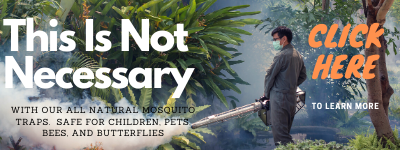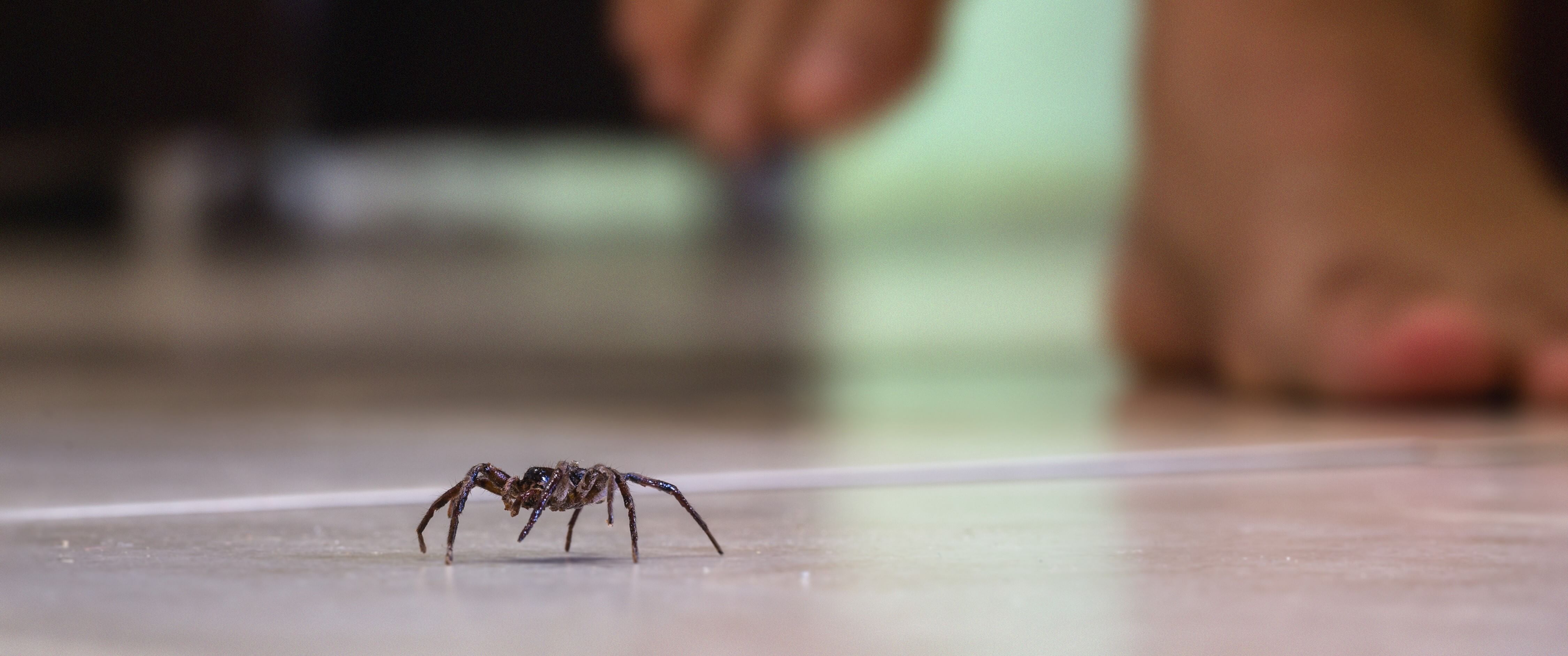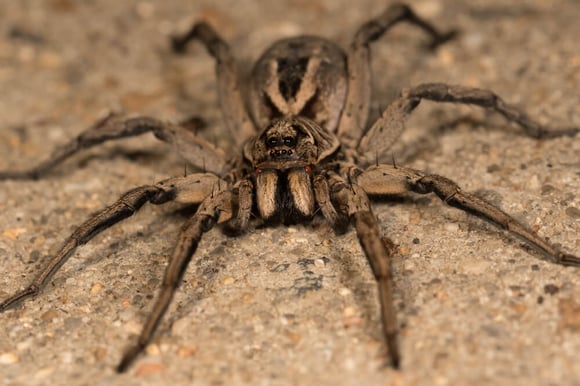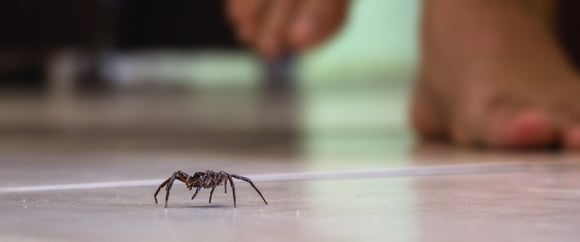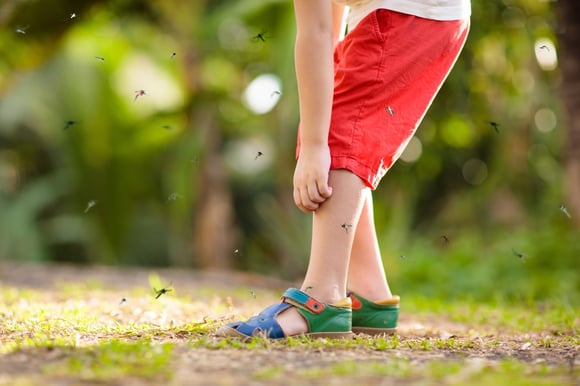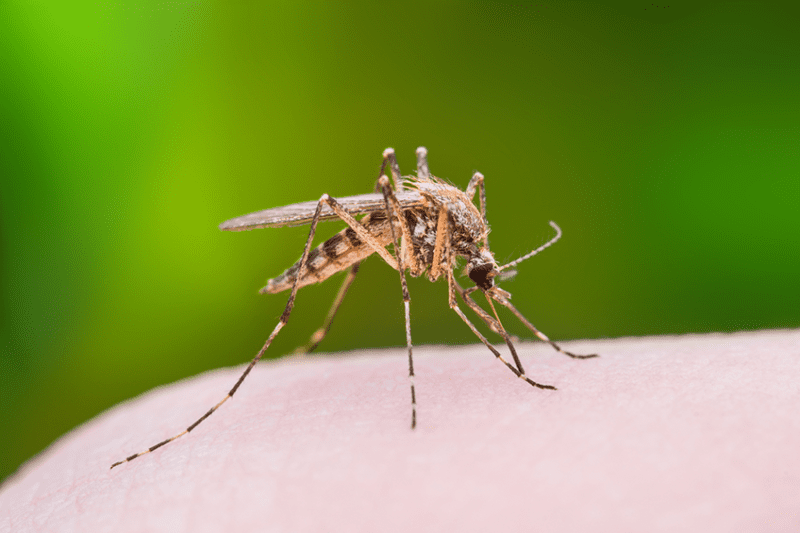
No one likes a pest in or around their home. From the simple buzzing of a nearby mosquito that you flick away to the ‘Ouch!’ of the bite from a venomous spider, you don’t want them in or around your home.
Warm weather means outdoor barbecues, pool parties, picnics, sports and a host of other activities that people enjoy. Warm weather also means more pests around to be a nuisance to you and your family as you are outside enjoying all there is to do in the beautiful sunshine. Inevitably, you will find yourself with a bite and trying to decide if the bite is something to worry about. The most common bites that occur to people are mosquito bites and spider bites. You need to know the difference.
Mosquito Bites
Did you know that only the female mosquito of most mosquito species are the ones that bite humans? Female mosquitoes need the blood in order to lay fertile eggs. The main energy source of both male and female mosquitoes is flower nectar. Mosquitoes continuously search for food which means the female mosquito is constantly looking for her next victim to bite. As you and your friends and family are outside enjoying a fun game of Frisbee, you are all prime targets for a hungry mosquito.
What Does a Mosquito Bite Look Like?
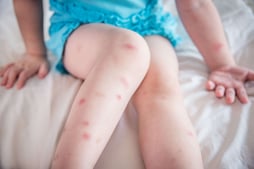
A typical sign of a mosquito bite is a small, pink or red bump on your skin. It may or may not itch. Most people who get a mosquito bite have mild to no reactions. Some people, however, will develop a large, swollen bump with excessive itching from a mosquito bite. Few people will have severe reactions to a mosquito bite.
What are the Symptoms of a Mosquito Bite?
Mosquito bites, in general, are nothing to be concerned about. You might feel a small sting when a mosquito bites you. From there, you will possibly begin to itch at the site of the mosquito bite. When a mosquito bites, it pierces your skin and injects saliva. Depending on your histamine response to the saliva, you will itch accordingly. The bump and itching are usually gone within a day or two. Occasionally, people have been known to get a secondary infection at the site of a mosquito bite that might need to be treated with antibiotics. You will need to seek medical treatment if you notice any of the following:
- Bright red bump that has grown larger than initial bite
- Soreness at the site
- Mosquito bite site feels feverish
- Temperature of 100F or greater
- Body aches
- Vomiting
West Nile Virus, Easter Equine Encephalitis and Dengue Fever have been found in mosquitoes in the US. https://www.pestworld.org/news-hub/pest-articles/mosquitoes-101/
How to Treat a Mosquito Bite
You have been outside with your family and notice your daughter is incessantly scratching her legs. She comes to you complaining that her legs are itching and you see several red whelps where she is scratching. The first thing you want to do is take her inside where the air is cooler. The heat and sweat tend to make the itching worse. An ice pack will help with any swelling at the mosquito bite site. An over the counter topical anti-itch medication can be applied directly to the irritated site to help control the itching. For a better control of the swelling and itching, an internal antihistamine can be taken. All of these used together will help with immediate swelling and itching of a mosquito bite.
If a mosquito bite seems worse in a day or so, seek medical attention. If you experience any extreme reactions, seek medical attention immediately by calling 911.
For most people, a mosquito bite is simply a nuisance because of a slight itch. Pay attention to your body. If you have any extreme reaction or notice any of the above symptoms in the days following a mosquito bite, a trip to your doctor or your local ER is warranted. Take care of yourself and your family by keeping your yard free of mosquitoes.
Spider Bites
Spider bites are not as common as you might think. Most spider species are not large enough for their pincers to be able to pierce human skin even if they do try to bite. As much as 80% of suspected spider bites in humans end up being something completely unrelated. Larger spiders can bite and inflict harm. The most dangerous thing associated with spider bites is the venom. A spider’s venom can contain neurotoxins and necrotic agents. Infectious diseases are rarely spread by spider bites. The black widow and the brown recluse are the two most commonly found spiders in the US that cause concern from their bite. They are both typically non-aggressive spiders. Areas you might find these spiders are:
- Dark, dry areas
- Under sinks
- Under litter in a garage
- In closets
- Woodpiles
- Under lawn mowers
- In attics
While these spiders are timid, they will bite when they feel threatened. A spider bite from one of these two species is dangerous.
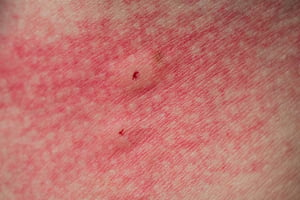 What Does a Spider Bite Look Like?
What Does a Spider Bite Look Like?
The majority of spider bites are harmless. You likely will not notice any symptoms from a spider bite. In fact, other bugs and insects are usually the culprit for most perceived spider bites. It is possible, however, for you to get a spider bite so here are some things to look for if you suspect you have been bitten:
- Itching at the site of the spider bite
- Rash
- Redness around the area of the suspected spider bite
- Swelling of the area of the suspected spider bite.
- Pain in the area of the suspected spider bite
What Are The Symptoms Of A Spider Bite?
The symptoms of a spider bite can range from mild to serious enough to need medical attention. Most spider bites are inconsequential. However, if you experience a spider bite from a known venomous spider like the black widow or the brown recluse, you will need to watch it closely. Symptoms of a spider bite can begin anywhere from one to three hours and can continue to worsen throughout the day. Spider bite symptoms from a venomous spider can include the following:
- Pain
- Swelling
- Sweating
- Stomach cramps
- Chills
- Body aches
- Weakness
- Joint pain
- Trouble breathing
- Nausea
- Vomiting
- Headache
- Ulcer at the site/purple center
If you notice any of these, you should seek medical attention. Rarely, allergic reactions to non-venomous spider bites can happen. In this case, you may experience a swollen face, all over itching and trouble breathing. You should seek medical attention immediately when this occurs.
How to Treat a Spider Bite
Remember that most ‘spider bites’ are not actually from the bite of a spider. Most perceived spider bites are actually from something unrelated. However, if you suspect that you have been bitten by a spider, here are some ways to treat a spider bite:
- Clean a spider bite with soap and water
- Apply a cold compress or ice to the spider bite
- Take antihistamine for minor symptoms of itching
- Take acetaminophen for minor symptoms of pain
- If you have a severe reaction and go to a doctor, try to capture the spider and take it with you to show the doctor.
- If you suspect a spider bite from a black widow or brown recluse, elevate the area if possible.
- If you suspect a spider bite on a limb is from a black widow or brown recluse, tie a bandage above the bite (don’t cut off circulation) and elevate the limb
- If you have any severe reactions or symptoms, seek medical attention
- If symptoms worsen over a 24 hour period, seek medical attention
If you notice redness that is spreading away from the site of the spider bite, an increase in pain, drainage, numbness or tingling or a bull’s eye around the spider bite, seek medical attention. These are signs of a spider bite from a venomous spider and treatment is necessary by a medical professional. https://www.pestworld.org/news-hub/pest-health-hub/spider-bites/
There are many activities that you enjoy with your friends and family so it is inevitable that someone will end up with a mosquito bite or a spider bite. It is important that you know the difference between a mosquito or spider bite. If you are concerned with mosquitoes or spiders in your home or yard, you should contact a licensed pest control professional to ensure effective control of these pests. You don’t want a mosquito bite or a spider bite to end your fun prematurely. After-all, the best times in life are spent with friends and family.
